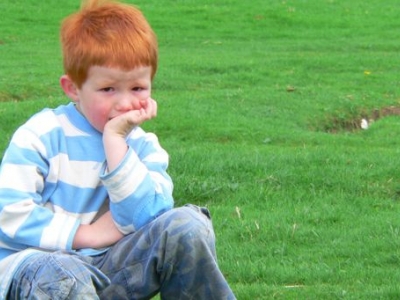
Helping your kids understand fairness
There's different strategies required for younger and older children to help them see how fairness works.
I’m hoping you have already had a look at Part 1 and Part 2 of this series on fairness. We are now going to focus on how we might teach our kids about fairness. The way I want to handle this topic is by thinking about kids in ages groups, as well as two big themes in the Bible: God’s character and human nature.
1. Little Kids: teach rules that promote fairness (with room for grace)
Part of God’s kind provision for his people is the set of rules that he gives to Moses to pass on to the people. The rules were not an end in themselves, but they served in two directions – they demonstrated the fairness in God’s character, and also gave a helpful corrective to the human tendency to be unfair in how we treat others.
Families build their own culture, in part, by having rules that show what this family will value. This is especially important for young kids, who are looking for structures and find them a comforting place from which to explore the world and make sense of it. So it is fine to set up rules and be consistent in enforcing them, so that your little kids can learn about fairness.
Teaching little kids to take turns is a good example of how many of us already teach fairness to little kids.
It would be helpful to have a short phrase to remind your kids that these rules remind the family that God is fair, and also that we need help to be fair with each other.
But rules in themselves can trap us. It is possible that (because of the human stain of selfishness), we might find our little kids twisting rules about fairness for their own selfish ends. This is where our knowledge of God’s grace helps us out. With the goal of helping our kids to be more like Jesus, we want even young kids to see that generous kindness beats the rules.
I guess I’m saying that teaching little kids about rules for fairness should be about restraining human selfishness (not as a platform for demanding my rights). It is a way to show the character of the God we trust in (not as a way to validate my own importance).
2. Big Kids: Teach principles that promote fairness (with room for grace)
One of the mistaken concepts we can have about fairness is that everyone must be treated exactly the same in order to be treated equally. As our kids grow up and begin to figure out how the world is more complex, we need to shift away from rules and move toward principles that promote fairness.
If rules work from outside of us to guide us, then principles work from inside us to guide us. But in the same way that rules point us to God’s character, so also the principles that promote fairness, are taught so that our kids know what our God is like.
We want our kids to internalise the principles we have built into our family culture, because those principles help us to overcome the stain of selfishness by responding to different situations with fairness (being a voice for the vulnerable, for example).
As we shift away from rules to principles, the one thing we don’t want to do is lose sight of the power of God’s grace in our lives. That core characteristic of God’s character can flood through our principles, so that the principles are used to serve others' needs (rather than selfishly seeking to meet my own needs).
I reckon we can use the childhood cry of “that’s not fair!” as an opportunity to help our kids think about why they think fairness is worth fighting for, and how they might fight for fairness when it looks like others might miss out.
For more articles from Growing Faith, subscribe to our monthly e-newsletter.
To hear about the latest books and resources from Youthworks Media, subscribe here.







